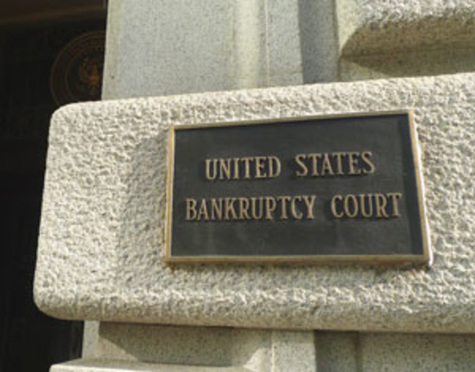Michael J Custer

June 14, 2018 | The Legal Intelligencer
False, But Unwritten Statement About Single Asset Does Not Block Debtor's DischargeAlthough broad, the Bankruptcy Code's discharge provisions for individual debtors are not without limits.
By Francis J. Lawall and Michael J. Custer
1 minute read

December 21, 2017 | The Legal Intelligencer
Bankruptcy Court Authorizes Rejection of Employment Separation AgreementsThe Bankruptcy Code can be an effective tool for reducing liabilities and enhancing asset value for the benefit of creditors. One of the more important tools is the right to not only assume favorable contracts pursuant to Section 365, but also to reject those which are not.
By Francis J. Lawall and Michael J. Custer
7 minute read

June 15, 2017 | The Legal Intelligencer
Bankrupt Driller Not Required to Plug Abandoned WellWhen an oil and gas driller enters bankruptcy, a host of unique issues often arise, inclu ding how to close abandoned wells in a responsible manner. The United States Bankruptcy Court for the District of Delaware recently confronted this problem in the case of an energy exploration and production company liquidating through Chapter 11, as in City of Beverly Hills v. Venoco (In re Venoco) 2017 Bankr. LEXIS 1457 (Bankr. D. Del. May 31, 2017).
By Francis J. Lawall and Michael J. Custer
13 minute read

February 05, 2016 | The Legal Intelligencer
Bankruptcy Code Section 1113 Trumps National Labor Relations ActA significant problem confronting many debtors seeking to reorganize through Chapter 11 involves the resolution of labor contract issues.
By Francis J. Lawall, Henry J. Jaffe and Michael J. Custer
7 minute read

July 17, 2015 | The Legal Intelligencer
Casino Tenants Revel in Victory Enforcing Section 365(h) RightsThe ill-fated Revel Casino bankruptcy has presented a spectacle worthy of a television miniseries. From the very public destruction of a multibillion-dollar investment to the ongoing dispute with its adjoining power supplier, this case has managed to stay in the news for several years. It has also helped further develop several important legal issues that arise in contested Chapter 11 sales, one of which involves the ongoing rights of a tenant who is party to a rejected lease of property sold pursuant to Section 363.
By Francis J. Lawall and Michael J. Custer
8 minute read

July 16, 2015 | The Legal Intelligencer
Casino Tenants Revel in Victory Enforcing Section 365(h) RightsThe ill-fated Revel Casino bankruptcy has presented a spectacle worthy of a television miniseries. From the very public destruction of a multibillion-dollar investment to the ongoing dispute with its adjoining power supplier, this case has managed to stay in the news for several years. It has also helped further develop several important legal issues that arise in contested Chapter 11 sales, one of which involves the ongoing rights of a tenant who is party to a rejected lease of property sold pursuant to Section 363.
By Francis J. Lawall and Michael J. Custer
8 minute read

December 05, 2014 | The Legal Intelligencer
Bankruptcy Court Bakes Trademark Protection Into Section 365(n)Section 365(n) of the Bankruptcy Code generally provides powerful protection to intellectual property licensees against debtor licensors who seek to reject those licenses.
By Francis J. Lawall and Michael J. Custer
8 minute read

September 05, 2014 | The Legal Intelligencer
Only Debtor's Intent Relevant in Fraudulent Conveyance ClaimFraudulent conveyance litigation, whether filed in federal or state court, is typically designed to recover assets intentionally transferred to a third party as part of a debtor's scheme to avoid the claims of its creditors. What is often misunderstood in such litigation is whether a defendant's lack of knowledge regarding the debtor's fraudulent intent warrants a motion to dismiss. Unfair as it may seem, the U.S. Court of Appeals for the Third Circuit has recently confirmed that only the debtor's intent is relevant in SB Liquidation Trust v. Preferred Bank (In re Syntax-Brillian), 2014 U.S. App. LEXIS 15359 (3d Cir. Aug. 11, 2014). This decision sends a clear message to defendants facing intentional fraudulent-transfer actions that, although their lack of knowledge may provide an affirmative defense, it does not prevent such claims from going forward.
By Francis J. Lawall and Michael J. Custer
7 minute read

April 18, 2014 | The Legal Intelligencer
Preference Defendant May Utilize New Value From Third PartyThe Section 547(c)(4) "subsequent new value" defense often represents a straightforward, yet powerful weapon against a debtor or trustee seeking to recover allegedly preferential payments.
By Francis J. Lawall and Michael J. Custer
8 minute read

February 03, 2012 | The Legal Intelligencer
Chapter 11 Plan Appeal Viable Long After Effective DateThe "effective date" of a Chapter 11 plan represents the point in time when a debtor begins to implement the plan's provisions and make distributions to creditors. Often, parties will feel safe in assuming that once a confirmed plan goes effective and substantial implementation of it has occurred, the "train has left the station" and any remaining objections to confirmation have become moot.
By Francis J. Lawall and Michael J. Custer
8 minute read
Trending Stories
- 1ACC CLO Survey Waves Warning Flags for Boards
- 2States Accuse Trump of Thwarting Court's Funding Restoration Order
- 3Microsoft Becomes Latest Tech Company to Face Claims of Stealing Marketing Commissions From Influencers
- 4Coral Gables Attorney Busted for Stalking Lawyer
- 5Trump's DOJ Delays Releasing Jan. 6 FBI Agents List Under Consent Order



